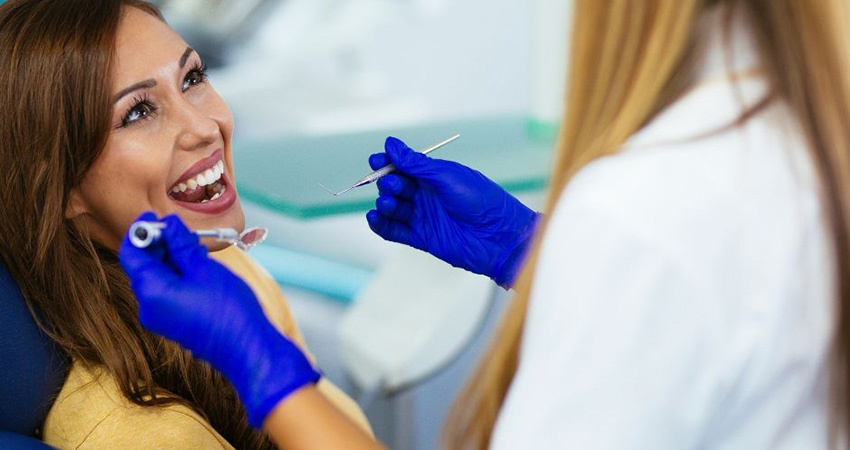
The Future of Dentistry: Emerging Technologies and Trends to Watch
The field of dentistry is evolving rapidly, driven by technological advancements and innovative approaches to patient care. These emerging technologies and trends are poised to revolutionise dental practices, making treatments more efficient, effective, and comfortable for patients. Here’s a look at the future of dentistry and what you can expect in the coming years.
- Digital Dentistry and CAD/CAM Technology
Computer-Aided Design and Computer-Aided Manufacturing (CAD/CAM) technology is transforming dental practices. This technology allows dentists to design and manufacture precise dental restorations, such as crowns, bridges, and veneers, in a single visit. The digital impressions and 3D printing capabilities enhance accuracy and reduce the turnaround time, providing patients with faster and more comfortable treatments.
- Teledentistry
Teledentistry is expanding access to dental care, especially in remote and underserved areas. Through virtual consultations, patients can receive professional advice, diagnosis, and follow-up care without needing to visit the clinic in person. This trend is expected to grow, providing greater convenience and flexibility for both patients and dental practitioners.
- Laser Dentistry
Laser technology is becoming increasingly popular in dental procedures. Lasers can be used for a variety of treatments, including cavity detection, tooth decay removal, gum reshaping, and teeth whitening. The benefits of laser dentistry include reduced pain, faster healing times, and minimal need for anesthesia, making procedures less invasive and more comfortable for patients.
- 3D Printing
3D printing is revolutionising the way dental appliances and restorations are created. This technology allows for the precise fabrication of crowns, bridges, dentures, and even orthodontic aligners. 3D printing reduces production costs and time, offering customised solutions that fit patients perfectly and improve treatment outcomes.
- Artificial Intelligence (AI)
AI is making its mark in dentistry by enhancing diagnostic accuracy and treatment planning. AI-powered software can analyse dental images and patient data to identify issues such as cavities, gum disease, and oral cancers earlier than traditional methods. AI also aids in developing personalised treatment plans, ensuring that patients receive the most effective care based on their unique needs.
- Augmented Reality (AR) and Virtual Reality (VR)
AR and VR technologies are being integrated into dental education and patient care. VR can be used for immersive training experiences, allowing dental students to practice procedures in a virtual environment. AR, on the other hand, can assist dentists during procedures by overlaying digital information onto the patient’s anatomy, enhancing precision and efficiency.
- Regenerative Dentistry
Regenerative dentistry is an exciting field that focuses on the use of stem cells and tissue engineering to repair or regenerate damaged oral tissues. Researchers are exploring ways to stimulate the body’s natural healing processes to regenerate teeth, gums, and bone, potentially eliminating the need for traditional fillings, implants, and dentures in the future.
- Biomimetic Materials
Biomimetic materials are designed to mimic the properties of natural teeth. These materials are being developed to create dental restorations that closely resemble and function like real teeth. The use of biomimetic materials aims to improve the longevity and aesthetic appeal of dental treatments while preserving more of the natural tooth structure.
- Intraoral Scanners
Intraoral scanners are becoming a staple in modern dental practices. These devices capture highly detailed digital impressions of a patient’s mouth, eliminating the need for traditional moulds. Intraoral scanners improve the accuracy of dental restorations and aligners and enhance the patient experience by providing a more comfortable and faster process.
- Smart Toothbrushes
Smart toothbrushes equipped with sensors and Bluetooth connectivity are helping patients improve their oral hygiene. These toothbrushes provide real-time feedback on brushing techniques, track brushing habits, and even offer personalised tips for better oral care. Integrating smart technology into daily routines encourages better dental hygiene and preventive care.
The future of dentistry is bright, with these emerging technologies and trends paving the way for more advanced, efficient, and patient-centred care. We are committed to staying at the forefront of these innovations to provide you with the best possible dental experience. Stay tuned as we continue to embrace and integrate these advancements into our practice, ensuring a healthier, happier smile for you!




0